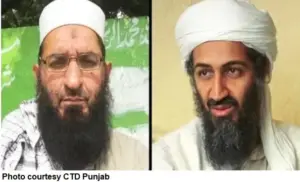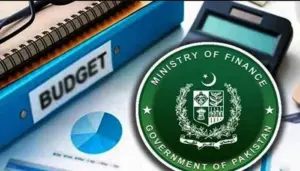Rich tributes paid to Sobho Gianchandani at centenary celebrations

Rich tributes paid to Sobho Gianchandani at centenary celebrations
KARACHI: Rich tributes were paid to writer and scholar Sobho Gianchandani at a day-long conference at the Arts Council of Pakistan to mark his centenary. The Anjuman Taraqqi Pasand Musannafeen organised on Tuesday evening.
The inaugural session of the conference was presided over by renowned historian Dr Mubarak Ali, who spoke via phone from Lahore.
He said Sobho`s personality should be remembered and written about. He led a simple life and remained loyal to his ideals till he breathed his last. The reason for his personality maturity (pukhtagi) was the time that he spent at Shantiniketan (West Bengal). It was a unique experiment undertaken by Rabindranath Tagore who set up an institute where art, literature, music and dance were taught; and students` would study under the trees.
Dr Mubarak, narrating a tale about that era, said once Tagore asked Sobho sahib why he didn`t befriend the girls on campus and was always found busy with studies. Sobho sahib replied he could befriend girls, but the reason that he was at the institute was that he wanted his country to be free [from British rule]. This passion for freedom led him to join the Communist Party.
He remained a member of the party and adhered to its ideology until his death. The columns that wrote for journals and the short stories that he penned indicated his inclination towards progressive thinking. In terms of personal relationship, the historian told the attendees of the moot, whenever he`d be visiting Sindh the late politician would come and meet him with a great deal of affection.
Earlier, Dr Tauseef Ahmed Khan said Sobho sahib was one of those people who took part in the freedom war against the British. He went to jail many a time and was even incarcerated at Shahi Qila. From British rule to Ayub Khan`s tenure, the authorities kept putting him behind bars.
Javed Qazi said comrade Sobho had clarity of thought. The first time he went to jail was in 1942. He was the student leader of Sindh before Jam Saqi.
`Sindh`s Socrates` Dr Riaz Sheikh said Sobho Gianchandani was one of those politicians from the subcontinent who spent a big chunk of his life either in jail or house arrest or by going underground. There are three important f acets of his life. One, when he went to Bengal [to study] two, his ideological battles three, the partition of India in 1947.
He used to be called Sindh`s Socrates because like Socrates he didn`t write much but whatever he wrote it left a strong impact on readers.
Sohail Sangi narrated some personal stories one of which was about his grandchildren who once met Sobho sahib in an informal atmosphere and when the politician died the young ones expressed their surprise at the kind of environment in which they`d met such a great man. He said Sobho has strong impact on Sindhi intelligentia as he worked in students as well as in peasantry and labour.
Sohail Sangi said that he thrice refused to leave his land and migrate to India. Once in 1948 the then Prison minister Habib Rehman offered him to leave the country. For second time he rejected the suggestion of G M Syed to go to India.
Sangi said that Sobho remained optimist till death and had said in interview that after break of Soviet Union all is not waste. Still there is hope.
Mir Munawwar Ali Talpur said Sobho Gianchandani was a history-maker. He was born in a rural area but led the struggle for the working class people in cities. The marked feature of his personality was him being a politician and a writer. Sobho sahib was born on May 3, 1920 and died on Dec 8, 2014.
Zehra Khan said she had never met the late political thinker and writer but had read about him. He was an optimist. He always saw light at the end of the tunnel. He belonged to a time when religious harmony was practised. The way he kept people together is something that`s missing from today`s society.
Prof Dr Sher Mehrani said Sobho Gianchandani was a multidimensional person.
The progressive aspect of his personality was the most prominent. At the same time he produced literature. Literature and politics cannot be separated. Touching upon his short stories, Dr Mehrani highlighted two of them Subh kabho gi and Dhai rupey ka qarza the former was about women`s rights and the latter had an autobiographical tinge to it.
Mazhar Jamil spoke about the book that he wrote on Sobho sahib whose first edition came out in 2006 and the second in 2009, which goes to show that in a country where the book reading culture has dwindled, people like to read about individuals who they hold in high esteem.
Ali Ousat Jaffery paid tribute to the late thinker in verse.
Second session
The second session of the conference was to be presided over by Dr Syed Jaffer Ahmed.
Dr Syed Jaffer Ahmed in his presidential remarks opined that going underground of party and its leadership hit the overall performance of the party. Dr Jaffer added that poetry and literature about tragedies and problems of labour in other languages of Pakistan is being produced, it is bad luck that such literature was not produced in Urdu or that is not reaching to us.
Labour leader Nasir Mansoor said that one of the reason for fading of the progressive thought in Pakistan is that relationship between pen and labour has been weakened. Quoting the example of Baldia Factory tragedy, Nasir regretted that writers and poets were not writing on the hardships and tragedies of labours in the present day Pakistan.
Imdad Qazi said that Sobho is our legacy and added democracy is important but actual solution lies in revolution.
Speaking on the occasion Labour leader Karamat Ali offered to publish the works of Sobho Gianchandani in Urdu.





